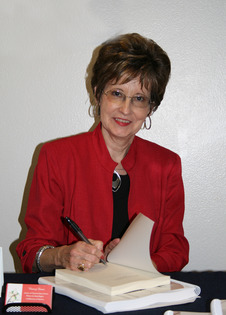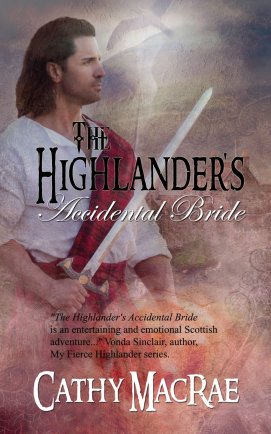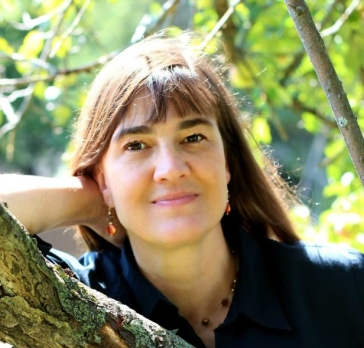
Nancy Dane is an author and lecturer, residing in Arkansas with many accolades to her name and books. She spent ten years compiling a history book on the Civil War in Arkansas entitled, Tattered Glory, which her series is based upon. The Arkansas Library Association named her Tattered Glory series the 2011 winner of the Arkansiana Fiction Award. Titles in the series include: Where the Road Begins, A Difference of Opinion, A Long Way to Go, and An Enduring Union. The series, although historical fiction is considered so accurate in the language and details of everyday life during the Civil War, it is used in the curriculum of many schools and colleges. She has a condensed version of Where the Road Begins appearing in newspapers around the country in the Education Selection. Nancy’s second book in the Tattered Glory series, A Difference of Opinion was nominated by the Civil War Institute at Gettysburg for the Michael Shaara Award, as the best Civil War Fiction of 2009. Currently, she has written a new serial for the Arkansas Newspaper Foundation about a Civil War orphan named Sarah Campbell and is based on a real person. You will be able to find it in newspapers as a chapter serial this spring.
Following is an interview with Nancy Dane about her books, lecturing, and personal interests, including an excerpt from Where the Road Begins. I’m certain you will find her and her work interesting. I sure do!
Nancy, your books have piqued my interest in the Civil War. What inspired you to write historical fiction on the Civil War in Arkansas?
First of all let me say thank you, CaSondra, for asking me to be a guest on your blog. It is an honor. And I’m delighted the books piqued your interest.
I’ve always been intrigued by the Civil War and I love to read. Historical fiction is my favorite genre and Gone with the Wind one of my all-time favorites. When I first began writing, the war seemed the perfect starting point for a series of my own. It occurred to me that although I knew some about the war in general, I knew next to nothing about the war in Arkansas where I live. Since I’m a perfectionist I wanted the true story, not just what someone said happened so began my ten years of searching for source documents. The search ended with a documentary history book titled Tattered Glory. That is where the fiction series gets its name.
Tell us about each of your books in the Tattered Glory series.
Book one, Where the Road Begins, is the first two years of the war, written from the Confederate perspective. The protagonist is a young man from the hills, Elijah Loring, who is conscripted into the Confederate army. The story embraces his family, the mountain community, and his sweetheart Cindy. (Yes, there is romance in each novel, but not enough to discourage male readers. Judging from emails, I have more male fans than female! ) Although the battles of Pea Ridge and Prairie Grove, the major battles in Arkansas, are accurately portrayed as well as minor military engagements, my main focus in the novel is to portray the plight of civilians… one of the most important and yet unknown aspects of the war in Arkansas.
(Excerpt for Where the Road Begins. Thanks for sharing, Nancy!)
In the dark cold loft, Elijah turned back the covers and peeled off his outer shirt. Tonight the woolen long-johns and the heavy quilt would feel good. In the darkness, he breathed in the loft’s spicy odors. Bunches of dried herbs and braided strings of dried onions, garlic and peppers hung from the rafters alongside long threads of leather britches–green beans strung raw and hung to dry.
Before climbing into bed, something caught his eyes. He walked closer to the small window and stared a long while into the night. Suddenly he jerked on pants and boots, ran across the floor, and bounded down the ladder. He missed the last rung and fell. The thud echoed loud in the silence.
“Ma!” he hissed. “Hand me the gun, quick! There’s someone messing around the smokehouse.”
Becky sat straight up in bed. “Elijah! Don’t go out there.” In spite of her protest, she reached for the shotgun kept by her bed at night and handed it to him.
“I can’t let them steal our meat.”
Becky whispered to his departing back. “Meat is not worth getting killed for–or for killing someone either.”
He paused. “Food’s what keeps us alive, Ma.”
Although they had not yet butchered, there was a ham and two smoked shoulders left hanging from the year before. Elijah was determined to keep them.
A shoat grunted, moving about in the pen. Something had disturbed it. Over ground crisp with frost, Elijah crept closer. He could see nothing. His mouth was dry. He could hear nothing except his heart pounding in his ears. There was no moon–probably the reason the thief had chosen this night.
Elijah was thankful to know his way in the dark. With silent tread, he stepped around the big iron hog scalding pot. Just then someone stumbled. Elijah froze. The culprit was close. The muttered oath had come from just beyond the rain barrel.
Elijah squatted behind the barrel and waited. The dark blotch grew closer. Now he could make out the shape of a man. The fellow was tall and bulky. The foul smell of stale sweat preceded him. When the thief was almost even with the barrel, Elijah stood. He held the shotgun cocked and ready.
“Drop it.”
The man froze. A knife clattered to the ground.
“Doc, you weren’t aiming to cut down our hams with that knife were you?” asked Elijah. He did not lower the shotgun. Anger swept him. The old thief! He ought to blow Doc’s legs off! He and Pa and Ma had worked their fingers to the bone and Doc intended to stroll in and take it all without sacrificing even a drop of sweat.
Doc turned slowly. He gave a nervous laugh. “Now Lige,” he wheedled, “when a man’s young’uns is hungry, he gets desperate.”
Elijah snorted. “How come you don’t raise your own hogs? And how come you don’t grow a garden on that place of yours? Guess it’s just easier to steal, huh?”
Doc talked fast. “If you let me go, I won’t never bother ya again. I promise!” Then he pleaded, “Please, Lige! Things has been bad lately. Ever’ living thing I turn my hand to goes wrong.”
Elijah’s jaw hardened but Doc rushed on, “But I promise I’ll get me some hogs and grow some feed corn. And next year, I’ll grow me a big garden and then things will be better for us.”
Elijah caressed the shotgun hammer with his thumb. What would Pa do in a case like this? He was not sure. “If you ever set foot on this place again, I’ll shoot without even giving you a by-your-leave.”
“That’s fine, Lige,” Doc said, almost dancing with relief, “that’s fine.” He started off at a trot, his fat belly bouncing, but suddenly he stopped and called back in a loud whisper, “Please don’t name this to no one…Salvicy and the young’uns would be so shamed.”
His boots quickly pounded away in the darkness. Elijah sank down, his back against the rain barrel. With his boot he pushed at the long knife lying on the ground. Had he done the right thing, letting Doc go? Doubt grew. He stood and looked after Doc. It was too late now. He stealthily made his way back to the cabin, going a different route than he had come. Pa had taught him it never hurt to be extra cautious.
Book two, A Difference of Opinion, is from the Union perspective. The protagonist is a young woman, Nelda Horton, a town dweller, who assists her father (an avid Unionist) run the local newspaper. Nelda is soon spying for the Union, and Allen Matthers is her unlikely love interest. Surprises and intrigue are sprinkled throughout their story.
Book three, A Long Way to Go, is the sequel to book one and the conclusion of the story of Elijah and Cindy.
Book four, An Enduring Union is the sequel to book two, the Nelda and Allen story.
Lecturing can be overwhelming for writers. When you began lecturing on the Civil War in Arkansas, did it come naturally?
My gracious, no! That is a story in itself! Maybe more than you want to know. I was terrified at the thought. Although I was an A student in high school and college, I was willing to take an F rather than stand in front of the class. And yet, in order to be a successful author, I knew public speaking would be a necessary evil. Personally, I am a praying woman, so I cried out to the Lord and asked him to take my fear and give me his power. Because I felt led to write in the first place and because this career was his will for me, he did a miracle. My first speaking engagement was at my university in front of many prominent businessmen, professors, and even the president of the university and his wife! I was as calm as could be and even enjoyed it. I’ve now been speaking for six years, often to crowds of hundreds, and I love it. Only the good Lord and I know what a miracle that truly is!
Lest anyone think my books are traditional “Christian Fiction” perhaps I need to clarify that they are not. They are secular books, no sex scenes but some language and graphic violence, very realistic to the time, and that is why they are being used as curriculum in many public high schools and colleges.
Which book in the series was your favorite to write?
Hmm…That’s sort of like asking a mother which is her favorite child. I’ve loved writing every one… that is after they were written! LOL.
LOL. That is certainly true! Was one book more challenging to research than the others?
As I said before, I spent ten years researching before I began the series so I did the basic research all at the same time. Of course I did individual research on certain aspects included in each novel. I don’t recall any one being particularly harder than the other.
Doing the basic research on all the books at the same time really pays off. What about the characters, if you had to pick one favorite character from your books, who would it be?
Oh dear, that is a tough one. If I must choose, it would have to be Granny. She is a big favorite with my readers too. I had a fan from California write asking if Granny was going to die in the last book, and if so she couldn’t bear to read it. I had to laugh. By the way, Granny didn’t die in the last book.
Another favorite with my readers is Allen Matthers (books two and four). This delights me, because I meant him to be only a minor character, but he had a mind of his own and became a very major player.
Just last week I received one of my all-time favorite fan emails. It was from a girl who said she is fourteen and lives in Tennessee. She said she loves all the books and her favorite characters are… She went on to name almost every single character in every book! At the risk of sounding immodest, I agree with her. I love ’em all!
I must confess, Granny is my favorite too. In Where the Road Begins, you truly captured the dialect and by-gone phrases once used, such as ‘weaned on vinegar’ spoken by Elijah’s tobacco spitting Granny when talking about Viola. Your use of language truly pulls readers back into another era. How did you go about learning the usage and dialect of the period?
I was fortunate to have lived in the Arkansas hills and had interaction with elderly people who still spoke this way. The dialect and phrases seem authentic because they are.
You were blessed to have such a valuable living history so near. Thanks for passing that on in your writing so readers could benefit as well. So we can get to know you more, what do you enjoy doing in your free time?
I love to read. I love to fish. I love to spend time with my husband and our large family, four children, their mates, and our twelve grandchildren. We spend a lot of time together at our cabin in the mountains, very near where my characters live.
It sounds as though you are a very busy woman, but writers must write. 🙂 What are you working on now? Is it a historical centered around the Civil war in Arkansas or another time period?
My new historical series moves forward about ten years to feature the time of the timber boom in Arkansas as well as the coming of the railroad. I am writing the first novel now along with doing lots of research on the era and enjoying it very much.
One last probing question, because inquiring minds want to know. Where can readers connect with you online?
My web is www.nancydane.com and my fan-page on Facebook is www.facebook.com/nancydanebooks. Be sure to click the like button to be entered into drawings for free autographed book!
Thank you so much for joining us today, Nancy. It has been educational and FUN! I look forward to your new series, as I’m sure many other do too.
Below are Nancy’s books from the Tattered Glory series. Just click on the cover to purchase from Amazon. Nancy’s books are available wherever books are sold. And don’t forget to like her Facebook page for a chance to win a FREE autographed book!












